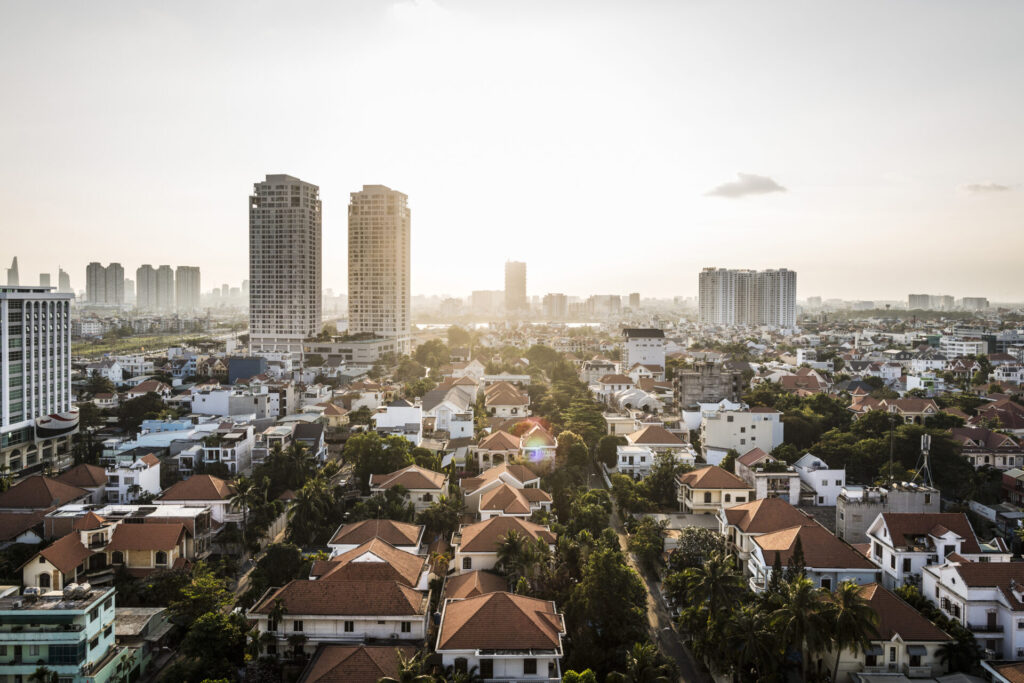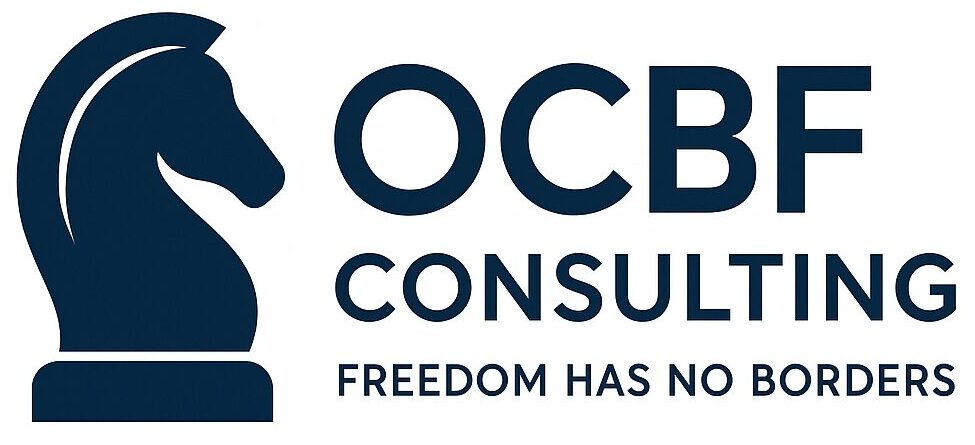A Shock to the System
Imagine waking up to discover that your debit card no longer works, your online banking app refuses to log you in, and the local branch where you once breezed in to open an account now demands biometric verification you can’t provide unless you’re physically in the country.
That’s the new reality facing many in Vietnam. In a sweeping move tied to the government’s national digital identity project, the State Bank of Vietnam has reportedly deactivated more than 86 million bank accounts that were deemed inactive, improperly registered, or lacking biometric authentication. For expats who no longer reside in Vietnam—or who simply cannot return at short notice—the result is chilling: money frozen in limbo.

Opening an Offshore Bank Account?
Avoid KYC mistakes and rejection with this 70+ page Offshore Banking Quick Start Guide.
Instant Access — $9
Get the GuideWhy Vietnam Is Doing This
The backdrop is Project 06, a sweeping initiative to unify digital identity across government services. Biometric verification—face scans, fingerprints, linked phone numbers—is at the heart of the system. Banks have been instructed to re-verify accounts against this national database.
Those who failed to comply, or whose records didn’t match, saw their accounts flagged and ultimately deactivated. It doesn’t matter if you are an engineer teaching English in Da Nang, a retiree who once lived in Hanoi, or a Vietnamese national working abroad but keeping a savings account at home: if you weren’t physically present to update your details, your account could be frozen.
Transactions above a certain threshold (10 million VND, roughly USD 400) now require biometric confirmation. The authorities say this prevents fraud. Critics argue it leaves customers with no practical way to access their money if they’re overseas. Open an Offshore Bank Account.
The Thailand Parallel to Vietnam’s Banking Crackdown
If Vietnam’s moves feel draconian, they are not without precedent. Across the border in Thailand, millions of accounts have been frozen in the past year as part of a sweeping anti-scam crackdown.
The Bank of Thailand’s campaign against “mule accounts” has imposed strict transaction caps, with many legitimate users caught in the crossfire. Daily transfer limits of 50,000 to 200,000 baht have disrupted businesses and individuals alike. In some cases, ordinary expats found their accounts suspended without warning, unable to pay rent or withdraw cash.
Public backlash was fierce, with small vendors and retirees caught in the same net as criminal networks. Lawmakers were forced to revisit the rules, promising appeals processes and clearer definitions. Still, the damage was done: confidence in the system took a hit, and the lesson for outsiders was clear—when policy turns heavy-handed, collateral damage is inevitable.

The Expat Risk Profile
Why do these changes hit expatriates so hard?
Residency Gaps
Many foreigners maintain accounts in countries they no longer live in full-time. Physical presence requirements for re-verification are impossible to meet.
Dormant Accounts
Expats often use local accounts sporadically—perhaps for property management, tuition payments, or retirement savings. These are the very accounts most likely to be flagged.
Documentation Hurdles
Updating paperwork from abroad can be a bureaucratic nightmare, especially when national databases demand in-country phone numbers, tax IDs, or biometric data.
No Appeal Channels
In both Vietnam and Thailand, the on-the-ground reality is stark: if your account is frozen, you must appear in person to fix it. There is no remote solution.
A Bigger Story: The Global Trend
At first glance, this might look like a uniquely Southeast Asian problem. In truth, it’s part of a global trend.
- Indonesia has announced dormant account freezes in the name of fraud prevention.
- India is rolling out biometric Aadhaar verification for financial services.
- The European Union is moving toward unified digital identity wallets.
- The United States has pressured banks to tighten KYC rules, with non-citizens often finding accounts suddenly closed.
Financial control is becoming more digital, more centralized, and more invasive. Governments justify it as a fight against scams, tax evasion, and money laundering. But in practice, it means ordinary account holders—especially foreigners—are more vulnerable to sudden policy shifts.

Lessons for the Global Citizen
So what should expats and internationally mobile professionals take away from Vietnam’s purge and Thailand’s freezes?
1. Never Keep All Your Money in One Jurisdiction
A single point of failure can be catastrophic. Whether it’s a crackdown, a political dispute, or even a natural disaster, access to your funds can evaporate overnight. This is another reason that asset protection with offshore trusts is an excellent vehicle for protecting wealth.
2. Stay Compliant—But Don’t Assume Compliance Protects You
Even if you’ve filed all the right forms, you may still get caught in a blanket policy. Bureaucracies rarely make exceptions.
3. Maintain Multiple Banking Relationships
A multi-jurisdiction strategy—say, keeping accounts in your host country, home country, and a stable offshore hub—offers redundancy.
4. Diversify Asset Classes
Keep part of your liquidity outside the traditional banking system. Precious metals, brokerage accounts, or self-custodied digital assets provide alternatives when banks falter.
5. Monitor Policy Signals
Stay plugged into local news and embassy updates. Most crackdowns are announced—or at least hinted at—before they bite.
6. Plan Your Recovery Path
If your account were frozen tomorrow, do you know the process to unfreeze it? Could you afford a last-minute flight to resolve it? Building that scenario into your planning can make the difference between inconvenience and disaster.
Human Stories
Consider the foreign contractor in Hanoi who reported online that his HSBC account would have been shut down if he hadn’t flown back at short notice to re-verify his identity. Or the small café owner in Chiang Mai who found herself locked out of her Thai account, unable to pay suppliers, because her transactions were flagged as “unusual.”
These are not hypotheticals. They are real lives disrupted by top-down decisions taken in the name of security. For every headline about billions lost to scams, there are thousands of quiet stories about honest people stranded without access to their own savings.

The Uncomfortable Truth about Vietnam’s Banking Crackdown
The uncomfortable truth is that your money is never fully yours if it is entirely dependent on one country’s banking system. When you deposit funds, you don’t just trust the bank—you trust the regulators, the politicians, the compliance officers, and the integrity of the country’s legal system.
That’s a lot of trust to place in a world where geopolitics shift rapidly, populist crackdowns gather steam, and digital control is tightening by the year.
Conclusion: A Wake-Up Call
Vietnam’s banking freeze may be explained away as modernization. Thailand’s may be framed as crime prevention. But the lesson for expats everywhere is bigger: sovereignty over your money can vanish overnight.
This doesn’t mean you should live in fear or abandon banking altogether. It does mean you should act with foresight: spread your risk, build redundancy, and think like a global citizen rather than a captive customer.
After all, freedom isn’t just about where you live—it’s about access to your own resources, on your own terms.

Before You Apply for Any Offshore Bank Account…
Most offshore applications are rejected for simple KYC and documentation issues. If you found this article useful, you’ll get even more value from the Offshore Banking Quick Start Guide — a 70+ page, step-by-step checklist used by entrepreneurs and crypto investors to submit bank-ready applications.
- Know exactly which documents banks expect to see
- Avoid the 12 most common rejection triggers
- Follow a 7-day plan to get your first account approved
Instant digital access. Just $9.
Get the Offshore Banking GuideQuick reference: key facts & dates
- July 2025: Vietnam reiterates that >86 million accounts lacking biometrics or long-frozen will be deleted from September 1; total accounts ~200 million. vietnamnews.vn+1
- Since 2024: Many Vietnamese banks require biometric verification for digital transfers ≥10 million VND or when same-day deposits exceed 20 million VND. Biometric Update+1
- July 1, 2025: Corporate accounts in Vietnam must complete biometric verification to transact electronically. Mobile ID World+1
- Aug 20, 2025 (Thailand): Central bank mandates daily online transfer caps (e.g., 50,000 baht baseline) with tiered increases based on risk profile/KYC history; phased rollout for new and existing customers. AP News










